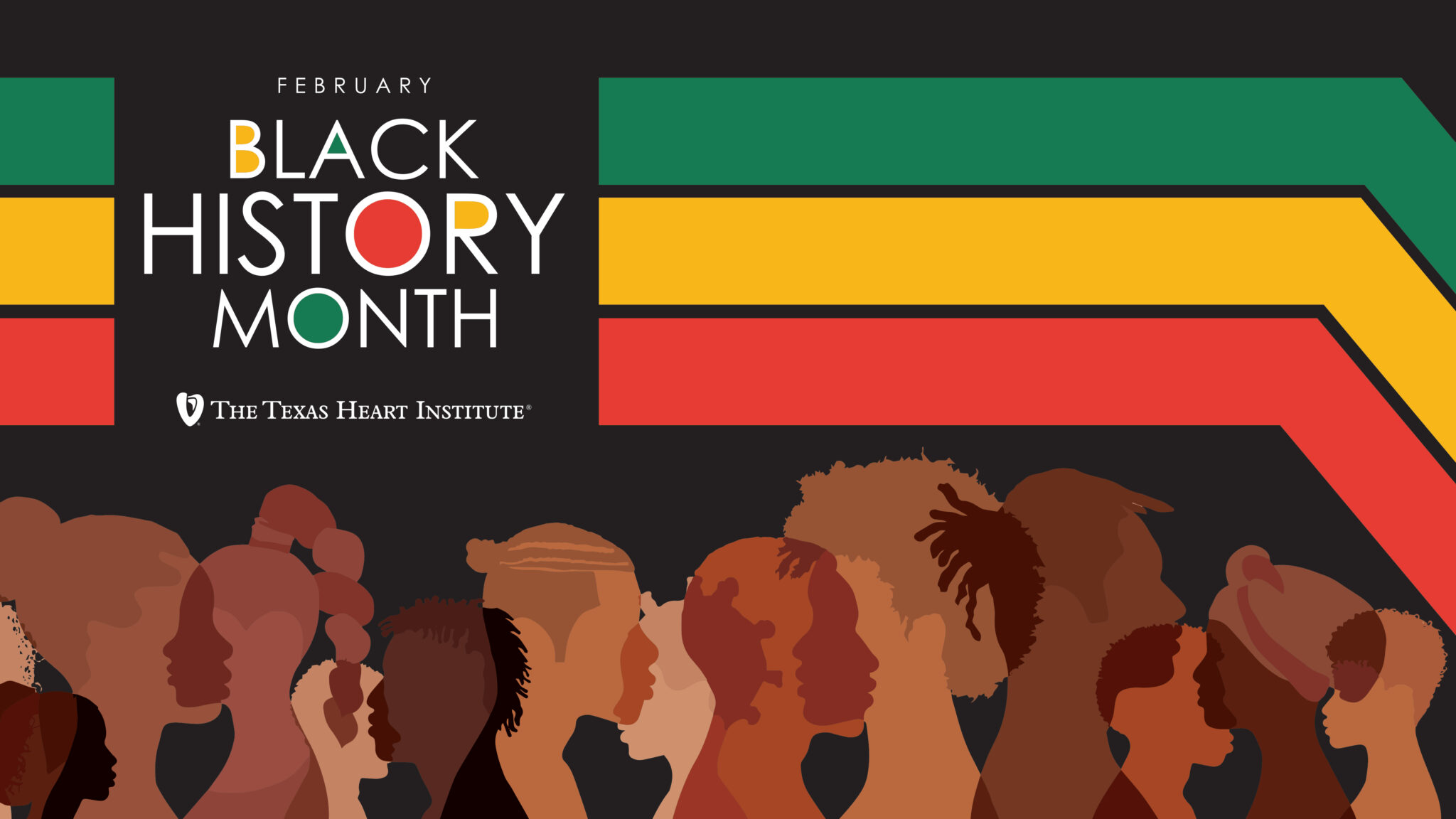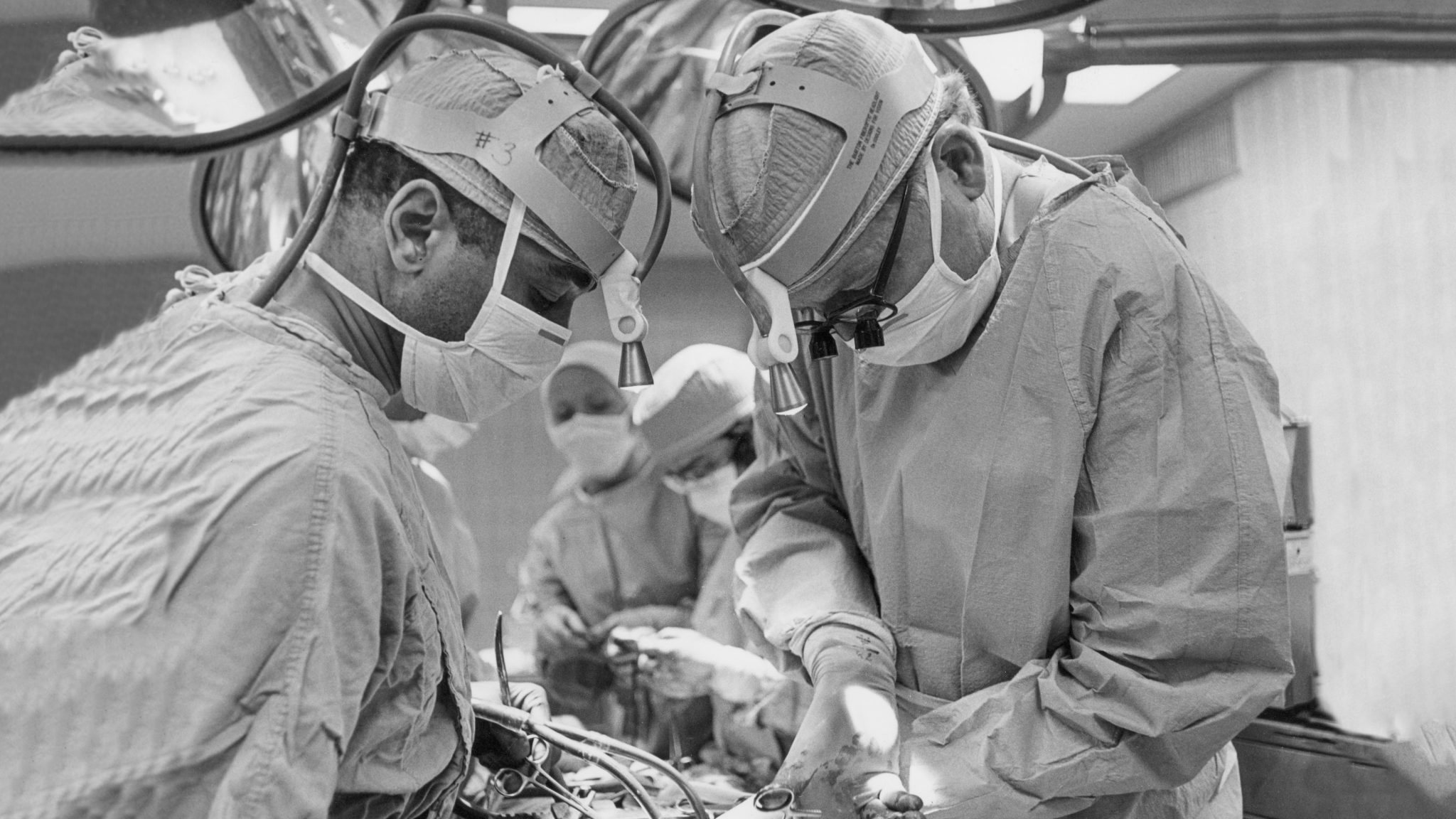Black History Month

“I had to be a pathfinder. And once you train yourself to run, you keep running.” – John Norman, MD
To commemorate Black History Month, we are proud to honor several exceptional cardiologists and cardiac surgeons who have overcome obstacles, challenged stereotypes, and made significant contributions to medicine. We express our utmost respect and admiration for the many groundbreaking achievements of the extraordinary individuals who have not only shattered barriers but have also made an enduring impact on the medical community.

Dr. John Norman’s groundbreaking work on the first left ventricular assist device (LVAD) utilized as a bridge to transplantation earned him international recognition. During a time in history when opportunities were unavailable to him due to his race, Dr. Norman’s vision and keen intellect helped build The Texas Heart Institute’s Cullen Cardiovascular Research Laboratories with Drs. Denton A. Cooley and O.H. Frazier.
Dr. Norman’s educational journey began at Howard University, where he earned his bachelor’s degree at age 16. Continuing his pursuit of knowledge, he obtained his M.D. from Harvard and gained invaluable experience in various locations, including New York City, the U.S. Navy, Michigan, and England. Following his tenure at THI, he was appointed to a faculty position in the Department of Surgery at Harvard University.
With immense admiration, we acknowledge Dr. Norman’s many contributions to THI, including developing a robust and enduring research program and serving as the inaugural editor-in-chief of The Texas Heart Institute Journal.
Dr. Norman once stated, “I had to be a pathfinder. And once you train yourself to run, you keep running.” These powerful words reflect the determination and resilience that characterized his extraordinary life. We encourage you to learn more about Dr. Norman’s life and scientific contributions to the field of cardiac surgery.
A Personality Profile from THI Today, October 1979, page 3
Cooley DA. In memoriam: John C. Norman (1930-2014). Tex Heart Inst J. 2014 Dec;41(6):569-70. doi: 10.14503/thij-14-4754. PMID: 25735054; PMCID: PMC4251322.
Vivien Theodore Thomas, despite humble beginnings and lack of formal education, Vivien Thomas became a highly skilled surgical technician and played a foundational role in developing a life-saving surgical technique for tetralogy of Fallot, also known as “blue baby syndrome.” His expertise and dedication were acknowledged during his 35 years as a lab supervisor at John Hopkins University, where he also taught surgical techniques to accomplished surgeons. In 1976, Thomas received an honorary doctorate, recognizing his exceptional achievements as an innovator and educator. Just One More | Vivien Thomas: Remembering a Pioneering Legend
Dr. Cooley Interview about Vivien Thomas “Opening Doors: Vivien Thomas”
Dr. Charles Curry is a nationally renowned expert in cardiovascular disease and hypertension. He has achieved numerous historic milestones, including being the first African American to receive post-graduate training in medicine and cardiology at Duke University. He was the first board-certified African American cardiologist in the United States and the first African American to serve on the board of trustees for the American College of Cardiology. As Howard University’s longest-serving chief of cardiovascular medicine, Dr. Curry has played a pivotal role in training a significant number of African American cardiologists, solidifying his status as a true pioneer in the field.
Josephine Isabel-Jones, a resilient and determined individual, overcame significant challenges to pursue her dream of becoming a pediatrician in the segregated South during the 1940s. Despite these obstacles, Dr. Isabel-Jones became one of four women to graduate from Meharry Medical College and the first African American resident at the University of Tennessee. She made history as the first African American woman to be board-certified in pediatric cardiology in the United States. Throughout her remarkable career, Dr. Isabel-Jones has steadfastly advocated for civil rights and has made significant contributions to medical mission work. Leading With Grace: The Story of Dr. Josephine Isabel-Jones
Dr. John Beauregard Johnson was a pioneering force in cardiology. As the first director of the Division of Cardiology at Howard University, he had a distinguished career in teaching and research. Dr. Johnson’s groundbreaking work in cardiac angiography and catheterization, as well as his understanding of the unique impact of hypertension on African Americans, has dramatically influenced the lives and health of millions. He also made history as the first African American physician elected as a fellow of the esteemed American College of Cardiology.
Dr. Richard Allen Williams, a visionary, made history as the first African American from Delaware to attend Harvard University. In 1974, he founded the Association of Black Cardiologists (ABC) and served as its president for ten years. Through ABC, Dr. Williams has been instrumental in promoting cardiovascular disease prevention and treatment in minority communities. He advocated for health equity through education and advocacy and established the Minority Health Institute, an organization dedicated to advancing the well-being of communities of color.




